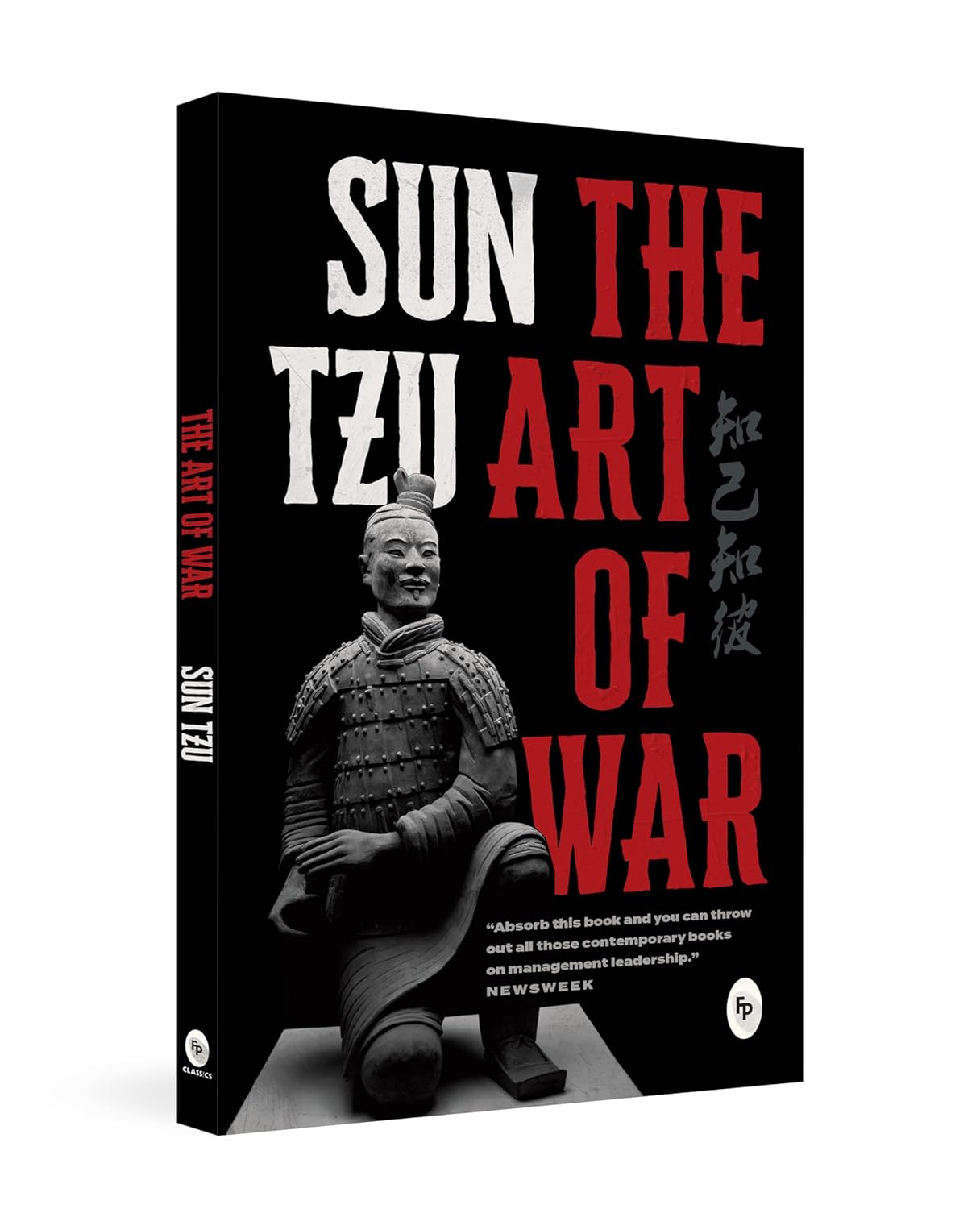The Art of War – by Sun Tzu
Secure Checkout with Amazon!
- Top-Rated Books
- Readers Satisfaction
- Verified Customer Reviews
Description
The Art of War is an ancient Chinese military treatise attributed to Sun Tzu, a military strategist and philosopher who is believed to have lived during the Eastern Zhou period (approximately 5th century BC). This classic work has transcended its original military context and has been widely applied to various fields, including business, leadership, and personal development. The text consists of 13 chapters, each dedicated to different aspects of warfare and strategy, making it a comprehensive guide on how to achieve victory in conflict situations. Its principles are as relevant today as they were over two millennia ago.
One of the foundational themes of The Art of War is the importance of strategy and planning. Sun Tzu emphasizes that all warfare is based on deception and that successful outcomes depend on careful preparation and foresight. He asserts that the best victory is one that is achieved without fighting, advocating for the use of intelligence and strategy to outmaneuver opponents rather than relying solely on brute force. This principle can be applied to various areas of life, including business, where strategic planning can lead to more favorable outcomes without engaging in direct competition.
Sun Tzu also highlights the significance of understanding both oneself and one’s adversary. He famously states, “If you know the enemy and know yourself, you need not fear the result of a hundred battles.” This underscores the necessity of self-awareness and knowledge of external factors in achieving success. In a business context, this translates to understanding one’s strengths and weaknesses as well as those of competitors, enabling informed decision-making and strategic positioning in the market.
The concept of adaptability is another key theme in the book. Sun Tzu asserts that the ability to adjust strategies based on changing circumstances is crucial for success. He emphasizes that rigid adherence to a single plan can lead to failure, as conditions on the battlefield (or in business) are constantly shifting. This principle encourages flexibility and the willingness to pivot when necessary, which is particularly relevant in today’s fast-paced and unpredictable environments.
The Art of War also discusses the significance of leadership and the qualities that make an effective leader. Sun Tzu argues that a good leader must possess wisdom, courage, and decisiveness. The ability to inspire and motivate troops (or employees) is essential for maintaining morale and achieving collective goals. He emphasizes the importance of leading by example and making decisions that prioritize the welfare of the team. This focus on ethical leadership and integrity resonates in modern business practices, where the impact of leadership on organizational culture and performance is well recognized.
Another important aspect of Sun Tzu’s philosophy is the concept of resource management. He stresses the need to conserve resources and avoid prolonged conflict, advocating for efficiency and strategic allocation of assets. This principle can be applied to both military campaigns and business operations, where optimizing resource use can lead to greater success and sustainability.
Throughout The Art of War, Sun Tzu employs vivid metaphors and analogies to illustrate his points, making complex ideas accessible and engaging. His writing is concise and direct, emphasizing clarity and precision in communication. This style not only enhances the effectiveness of the message but also makes it easier for readers to internalize and apply the teachings.
The text has been interpreted in various ways over the centuries, leading to numerous translations and commentaries. Its adaptability to different contexts has made it a timeless resource for those seeking guidance on conflict resolution, strategic thinking, and effective leadership. Many modern business leaders, athletes, and entrepreneurs have drawn inspiration from Sun Tzu’s teachings, applying his principles to navigate challenges and achieve success in their respective fields.
In addition to its military and business applications, The Art of War has also found relevance in personal development. The principles of self-awareness, adaptability, and strategic thinking can be applied to individual challenges and goals. The emphasis on understanding oneself and others fosters personal growth and enhances interpersonal relationships, making the text valuable for anyone seeking to improve their effectiveness in various aspects of life.
Overall, The Art of War remains a seminal work that continues to resonate across cultures and generations. Its teachings on strategy, leadership, and self-awareness are not only applicable to warfare but also to many areas of life. By studying and internalizing the lessons of Sun Tzu, individuals can develop the mindset and skills necessary to navigate challenges, seize opportunities, and achieve their objectives with confidence and clarity. Whether in the context of military strategy, business competition, or personal growth, the insights offered by The Art of War provide a timeless framework for success.






Reviews
There are no reviews yet.